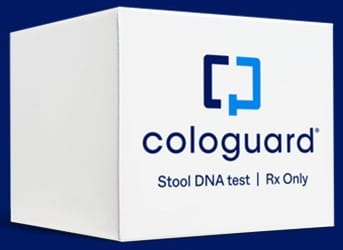
Get started by registering at the EpicCare website to place orders and receive results quickly and efficiently. Receive emails reminders when lab results are available. Access patient charts, including full history with Exact Sciences Laboratories, and run reports that include patients due for screening, order status, and order results.
Customized electronic options allow you to leverage your EHR or lab ordering workflow to place orders and receive results. Options include: fax or eFAX through EHR, EHR interface, and lab interface.
These electronic options require your IT department, EHR vendor, or lab partner. You can contact a representative to learn how to get started.
Fax or eFax is the simplest way to begin ordering. Get started with a secure faxline.
For ease of ordering, the Cologuard CPT code is 81528. Find more important ordering information on the FAQs page.

Discover Cologuard resources that can help your eligible patients when ordering a Cologuard test.
Find Cologuard resources for you and your practice
EHR=electronic health record; HCP=healthcare provider.
Indications and Important Risk Information
Cologuard is intended for the qualitative detection of colorectal neoplasia associated DNA markers and for the presence of occult hemoglobin in human stool. A positive result may indicate the presence of colorectal cancer (CRC) or advanced adenoma (AA) and should be followed by colonoscopy. Cologuard is indicated to screen adults of either sex, 45 years or older, who are at typical average risk for CRC. Cologuard is not a replacement for diagnostic colonoscopy or surveillance colonoscopy in high-risk individuals.
Cologuard is not for high-risk individuals, including patients with a personal history of colorectal cancer and adenomas; have had a positive result from another colorectal cancer screening method within the last 6 months; have been diagnosed with a condition associated with high risk for colorectal cancer such as IBD, chronic ulcerative colitis, Crohn’s disease; or have a family history of colorectal cancer, or certain hereditary syndromes.
Positive Cologuard results should be referred to colonoscopy. A negative Cologuard test result does not guarantee absence of cancer or advanced adenoma. Following a negative result, patients should continue participating in a screening program at an interval and with a method appropriate for the individual patient.
False positives and false negatives do occur. In a clinical study, 13% of patients without colorectal cancer or advanced adenomas received a positive result (false positive) and 8% of patients with cancer received a negative result (false negative). The clinical validation study was conducted in patients 50 years of age and older. Cologuard performance in patients ages 45 to 49 years was estimated by sub-group analysis of near-age groups.
Cologuard performance when used for repeat testing has not been evaluated or established. Rx only.